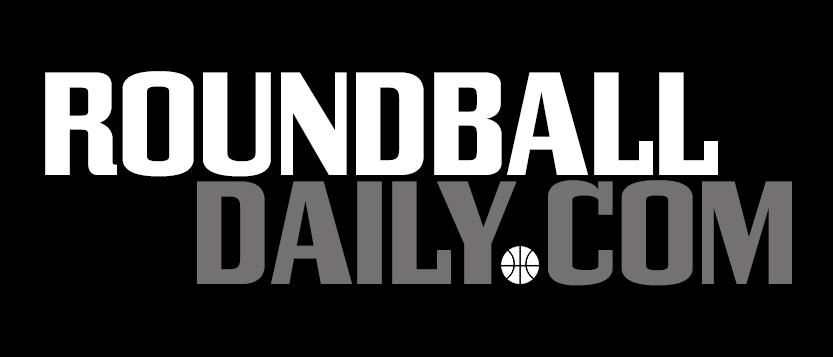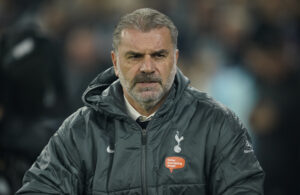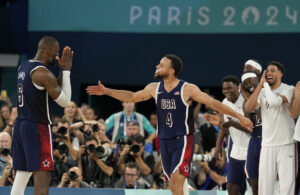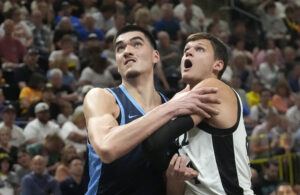- Attacking style not the only reason some Tottenham fans will back Ange Postecoglou until the bitter endPosted 6 months ago
- Paris Olympics takeaways: What did Team USA’s crunch-time lineup say about NBA’s hierarchy?Posted 11 months ago
- Zach Edey posted an easy double-double in Summer League debut. Here’s why he’ll succeed in NBAPosted 1 year ago
- What will we most remember these champion Boston Celtics for?Posted 1 year ago
- After long, seven-year road filled with excruciating losses, Celtics’ coast to NBA title felt ‘surreal’Posted 1 year ago
- South Florida men’s basketball is on an unbelievable heater– but also still on the bubblePosted 1 year ago
- Kobe Bufkin is balling out for Atlanta Hawks’ G League team. When will he be called up to NBA?Posted 1 year ago
- Former Knicks guards Immanuel Quickley, RJ Barrett may yet prove Raptors won the OG Anunoby tradePosted 2 years ago
- Rebounding savant Oscar Tshiebwe finally gets NBA chance he’s deserved for yearsPosted 2 years ago
- Is Tyrese Maxey vs. Tyrese Haliburton the next great NBA guard rivalry?Posted 2 years ago
Should the Ivy League tournament really be in the Palestra?
- Updated: March 6, 2018
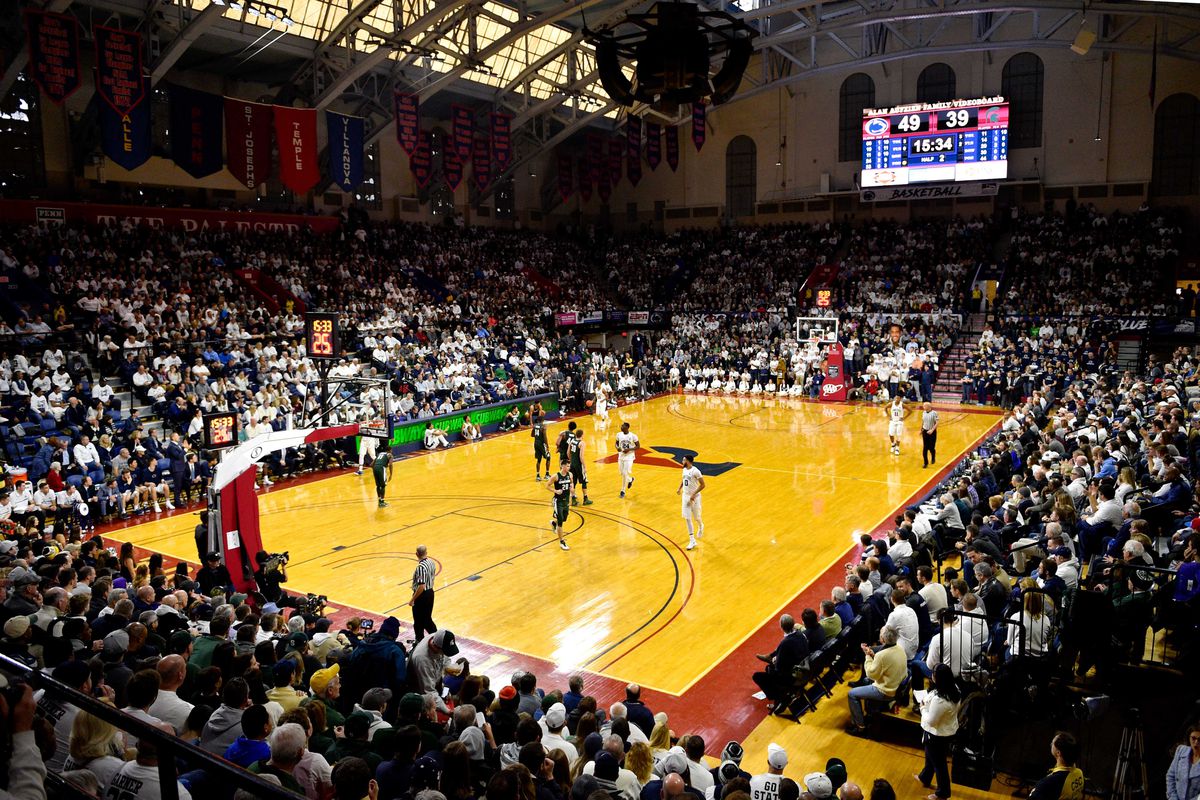
The Palestra is an historic arena, but as Penn’s home court, it gives the Quakers a decided advantage in the Ivy League Tournament. (Photo: USA Today)
The second-ever Ivy League Tournament will take place this weekend, and once again the site will be the Palestra in Philadelphia.
The Palestra just happens to be owned by the University of Pennsylvania and is the home of its basketball teams. And by no strange coincidence, Penn has qualified each year, not only for the men’s but the women’s tournaments.
What this means is obvious. The Quakers have a decided advantage over Yale, Harvard and Cornell, the other three in the men’s tourney. This is completely contrary to the true spirit of a tournament, which calls for a neutral venue, with all teams having an equal chance. The games should be decided strictly on talent.
Last year, the Quakers qualified fourth with a sub .500 record. Yet undefeated and eventual champion Princeton was fortunate to get into overtime before winning.
The Palestra, for all its history, attractiveness and tradition, does not provide a level playing surface for any team facing Penn.
Related: Ivy League final standings, tournament bracket set
All teams have an advantage playing at home, and Penn is high among them. This season the Quakers first lost at Harvard by nine, but then beat the Crimson by three in the Palestra.
Penn won over Yale by nine points at home, yet lost in New Haven by one. Even the gambling lines took notice of the location. Most fans thought of the Yale win as a big upset. Yet Penn was only a one-point favorite, amazingly close to the final outcome.
Aside from the fact that the Palestra is nowhere near centrally located for the other members of the league, it has little advantage except as a marketing tool to promote the Ivy group and one of its schools.
The administrators of the league invoke the expression “Cathedral of College Basketball,” to enhance the image of the building and the event. But most people in attendance or watching on television will do so because they will be rooting for one of the teams, and not because they are playing in a so-called “Cathedral.”
The Palestra is not only where Penn plays its home games, but it is where it conducts its day to day practices and meetings, starting in the pre-season and continuing into the tournament. The players get to know every bounce of the floor, where there may be “dead” spots, how tight or loose the rims are, how the ball bounces off the backboards, what the lighting and acoustics are like, etc.
They are familiar with the locker rooms and even the building’s working staff. In other words, it is a very comfortable place for them to be in.
Then there are the fans. Penn has perhaps the most boisterous cheering section in the Ivy and they travel well. Even though most of the students are on spring break, there are enough who live in and near Philadelphia to assure they will greatly outnumber those from Yale and, potentially, the winner of Harvard-Cornell.
Noise and taunts from an opponent’s supporters can certainly have an effect on a player, especially one who is on the foul line.
The tournament should be played at a truly and more convenient neutral site, such as the Webster Bank Arena in Bridgeport or the Mohegan Sun Arena in Uncasville, CT. Those are not on college campuses, of course, but most tournaments do take place in commercial buildings.
Another change could be in the format. All season long the Ivy League mostly plays on Friday and Saturday nights. But in its tournament the first round is on a Saturday afternoon, ending about 6 pm, then the championship game takes place on Sunday at the very unreasonable hour of 12-noon. That’s too short of a turnaround, especially for the winner of the second game the day before.
The early start on Sunday may have something to do with television. But it hardly affords fans who were not present to see their team win its opener and then make a late decision to attend the finale enough time to travel to Philadelphia, park their cars, buy tickets, and be seated in time for the early tip-off.
A better schedule would be Thursday and Saturday, or Friday and Sunday. Give the teams a day to catch their breaths and prepare for their next opponent. As a back-to-back tournament, it’s over almost as soon as it starts.
The league’s coaches should object to the venue and the schedule. But they probably don’t because it took them long enough to get a tournament in the first place.
One of them, however, Tommy Amaker of Harvard recently said, “I’ve always been in favor of our tournament being right here. I do feel like it’s that kind of environment.”
Let this be the last year the Ivy Tournament takes place in the Cathedral.
Move it to a better location and play it on a truly neutral court with a reasonable schedule.
